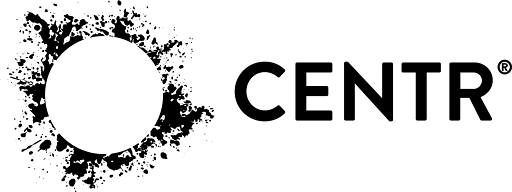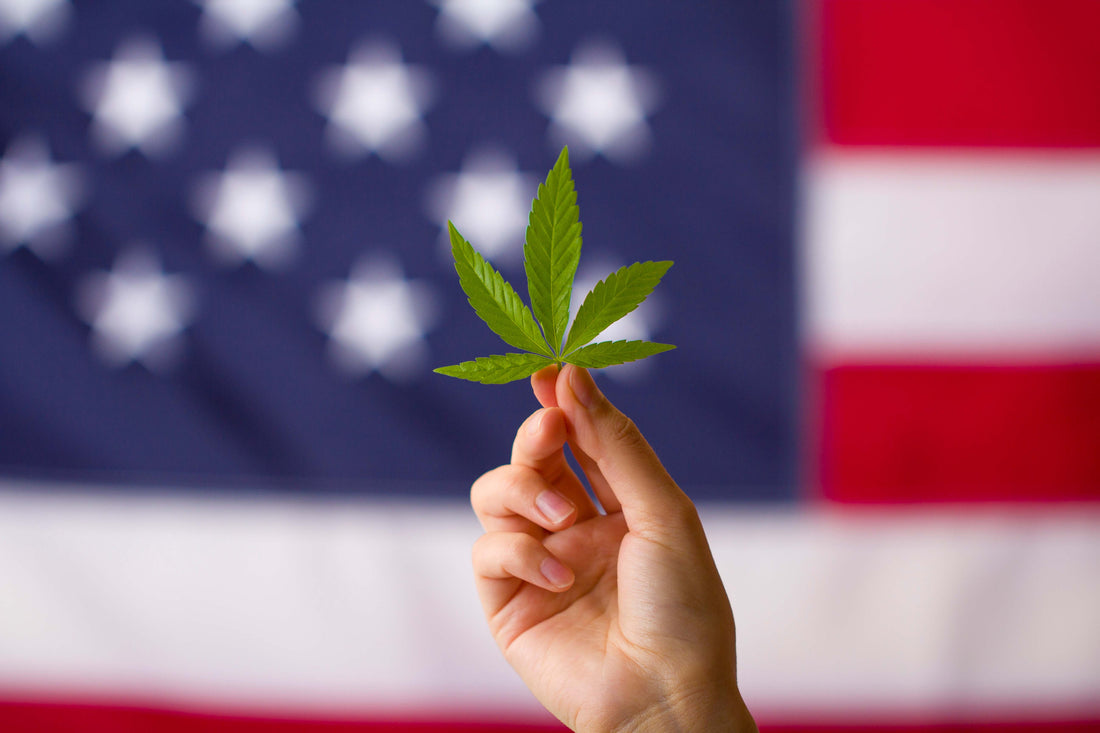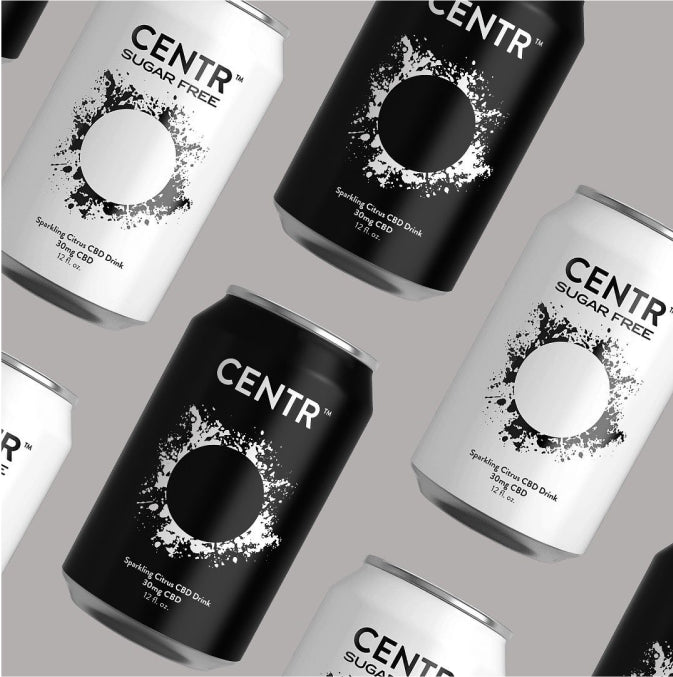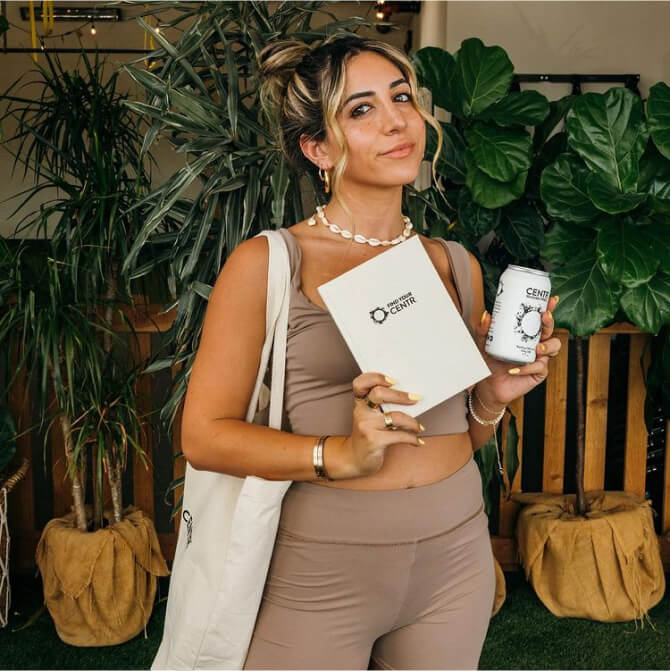People are increasingly using cannabidiol (CBD) to help manage their health, but confusion persists about its legal status. But is CBD a drug?
While CBD is federally legal, people are still unsure about the cannabinoid's legality.
Many consumers are asking whether CBD oil is a Schedule I drug according to the Controlled Substances Act (CSA). Federal and state laws can often conflict with each other, further fueling the confusion.
This article examines whether CBD is a controlled substance under federal and state law.
Let's start at the beginning. What is cannabidiol?
What is CBD?
Cannabidiol (CBD) is one of the many cannabinoids found in cannabis.
Researchers began isolating and extracting CBD from cannabis sativa plants and studying their health benefits. CBD is a cannabinoid that interacts with the endocannabinoid system (ECS), which is responsible for regulating homeostasis or the body’s internal environment. Consumers are exploring the many potential benefits CBD has to offer.
People use a variety of CBD products for:
- Reducing inflammation and pain
- Improving sleep quality
- And easing anxiety
CBD products are available in many forms, such as capsules, tinctures, sprays, oil, and topical creams.
What are the Effects of CBD?
Cannabidiol, or CBD for short, is one of the most important cannabinoids found in cannabis. It interacts with the endocannabinoid system (ECS), which regulates many physiological processes at a cellular level.
The ECS maintains homeostasis by balancing essential body functions such as blood pressure, mood regulation, sleep patterns, and digestion.
CBD is a chemical compound that comes from cannabis plants, but don't confuse it with THC (Tetrahydrocannabinol). While THC is well-known for its psychoactivity, CBD has no such psychoactive effects. CBD is not a drug as it is not a controlled substance. It is also free of hallucinogenic triggers. So no, it won't make you high.
Cannabidiol has over 100 identified uses, which makes it the most versatile cannabinoid in the world.
Many people state they use it to:
- Treat pain and inflammation
- Reduce anxiety
- Help manage depression
- Improve sleep quality
- Boost appetite in cancer patients going through chemotherapy treatments
- Prevent seizures
- Mitigate neurodegeneration caused by diseases like Alzheimer’s and Parkinson’s.
- People also say they use CBD as a treatment for addiction to prescription drugs and illegal substances like cocaine or methamphetamine.
Although many people use CBD as a wellness-boosting substance, there are some who do not share that opinion. Some concerned people worry that CBD could be addictive, while others worry it’s a gateway drug that will lead to harder substances. It’s important to note that no study or research has substantiated these fears. Some may think it’s just a fad, and there’s no real scientific evidence to support its claims.
However, the overwhelming success of the CBD industry shows that, overall, people are curious about CBD. And they're acting on that with a growing amount of research to fuel this curiosity.
Research into CBD's effectiveness and other uses for the plant is growing, making it an appealing option for people seeking alternative therapies. And with the increasing demand for CBD products, there are plenty of ways to get your hands on them. Many different kinds of CBD products are available today, from oils and tinctures to drinks and more.
But The Question Remains: Is CBD a Drug?
Is there a simple answer to the question: Is CBD a drug? That depends on who is answering it.
But here's the thing: CBD is not a controlled substance. The WHO released a report standing firmly behind CBD, saying it is not prone to develop dependency. And since CBD is not psychoactive and is not intoxicating, many (including the WHO) consider it a safe compound. Sure, researchers need to conduct more controlled clinical studies. But for now? There is no serious cause for concern. What we know for sure is that it is not a substance that causes any intoxication.
This seems simple enough, right? Except it isn't—especially not when state laws can contradict federal law. "Is CBD a drug" seems to depend more on where you're asking the question rather than who's answering it.
Overall, let's say federal law rules. In this case, according to the federal ruling, CBD is not a drug, as it is not a controlled substance.
What Does the DEA Say? Is CBD a Drug?
The Controlled Substances Act of 1970 was signed into law by former President Richard Nixon and established these five schedules for drugs. In the United States, the Drug Enforcement Administration (DEA) assigns each drug to one of five schedules. The assignment is based on its potential for abuse and its accepted medical use.
The DEA and FDA (Food and Drug Administration) oversee drug addition, removal, or reclassification.
Schedule I substances are deemed by the DEA to be the most dangerous, with a high potential for abuse and no accepted medical uses. They include (but not limited to):
- Marijuana
- Heroin
- And LSD
Schedule V substances have the lowest potential for abuse—and tend to receive the lowest scrutiny from law enforcement.
However, many people have criticized this classification system because they believe the DEA is overly harsh in categorizing drugs. For example, many people believe that marijuana should not be classified as a Schedule I drug. They argue that marijuana has proven medical benefits and is less addictive than many other drugs in this category.
Marijuana is a Scheduled Drug
The DEA’s Schedule I classification of marijuana has also been criticized because it makes it difficult for scientists to study the drug. They must apply for permission from the DEA before conducting research and are often denied this permission.
However, some people have criticized this classification system as a way to overly criminalize certain substances. Especially ones that are not necessarily any more dangerous than other drugs. Critics also argue that the scheduling system is not based on scientific evidence. Instead, it is more of a political decision that reflects current ideological beliefs about drug policy. For example, many believe that marijuana should be legal and regulated like alcohol or tobacco. However, this belief has not yet been reflected in federal drug laws.
But CBD is not the same as marijuana - so where does CBD fit in?
Is CBD a Schedule 1 drug?
After all, it is still derived from the cannabis plant and has similar chemical compounds. However, CBD has no psychoactive effects and therefore cannot get you high. There is also a lot of confusion about whether or not CBD is legal in the United States. In short, it is legal in all 50 states, with some restrictions on its use in each state. Under federal law, all forms of cannabis are illegal.
However, CBD is derived from the hemp plant, which is defined as a variety of Cannabis sativa with only trace amounts of THC. This means it cannot get you high and is not considered a controlled substance. The Farm Act of 2014 also legalized industrial hemp production for research purposes in states that have established pilot programs for growing hemp.
Is CBD a Drug? Not if it's Hemp-Derived CBD
The Farm Act of 2014 legalized industrial hemp production for research purposes. Hemp is defined as a variety of Cannabis sativa with only trace amounts of THC. This means that it cannot get you high and is not considered a controlled substance. The Farm Act also created an industrial hemp pilot program. This program allows universities and state agriculture departments to grow hemp for research purposes in states that have established such programs.
Hemp has been used for centuries for various purposes, including food and clothing. It is also an environmentally friendly crop that people can use to reduce pollution from soil erosion and the use of chemical pesticides.
Hemp is a versatile crop and can be used for the production of paper, textiles, and building materials. It has also been used in products such as soap, lotions, and food products like protein powder. Hemp is considered one of the most durable renewable resources available on earth.
The Farm Bill was a pivotal turning point in the history of the plant’s legality. The 2014 Hemp Farming Bill effectively made it legal for industrial hemp farmers to cultivate the crop without the need for a DEA-issued permit.
Following the 2014 Farm Bill, former President Donald Trump signed in the Hemp Farming Act of 2018. The 2018 Act reclassified industrial hemp, removing it from the controlled substances list. Responsibility for regulations has since fallen on the FDA’s shoulders.
The uncertainty about CBD's legality has created confusion among businesses and consumers alike, leading them to question whether it is permissible under federal law.
Is CBD a Drug According to Federal Law?
CBD's legality at the federal level depends on three things:
- Whether it comes from a hemp or marijuana plant
- How much THC is present in the original plant
- THC levels in the final product.
Under federal law, CBD that is derived from cannabis plants with more than .3% THC is considered illegal. This is because the intoxicating cannabinoid remains a Schedule I substance. What if the cannabis plant has more than .3% THC? All substances derived from it — including any CBD extracted from the plant — the DEA considers a federally restricted Schedule I substance.
So, is CBD a drug? Or not?
If the CBD is hemp-derived, its likelihood of having more than 0.3% THC is minimum. But if a CBD product contains more than 0.3% THC, the CBD product will be classified as a Schedule 1 drug.
And what if the end product contains less than 0.3% THC but was derived from a plant with more than 0.3% THC? Well, according to federal law, it will be a schedule I substance. I.e., a drug.
What this means for you
What does this mean if you’re looking for a CBD product? It’s crucial to find out whether the CBD was derived from hemp or cannabis. If it was derived from cannabis, ensure there is less than 0.3% THC in the final product (if applicable). The problem is that many companies are not transparent about this, so it’s essential to do your research before buying.
The confusion lies in the fact that many people use CBD in a medicinal capacity, and it has potential benefits for specific conditions.
There is one FDA-approved pharmaceutical drug based on cannabis: Epidiolex. It brings hope to many suffering from epilepsy. It has been shown effective in reducing the symptoms of Lennox–Gastaut syndrome—a severe form of the disorder that begins in childhood.
In a statement after the 2018 Farm Bill was signed, FDA Commissioner Scott Gottlieb confirmed that the agency would regulate hemp-derived CBD products. It holds authority to oversee and enforce compliance with the Federal Food, Drug & Cosmetic act (FD&C Act).
He also emphasized that only “cosmetic” CBD products—such as skin creams containing small amounts of THC—would be permitted for sale.
The FDA has declared that any product applied to the human body qualifies as a cosmetic. This designation would include many CBD products derived from hemp plants.
State Laws could paint a different picture
The answer to: Is CBD a drug? Could depend on where you ask the question. Because of federal law it is legal to manufacture, buy and sell hemp-based CBD oil. But different states have different laws related to the legal status of cannabidiol.
With CBD products becoming more widely available, it has become easier for consumers to purchase these items.
Some states that have legalized medical marijuana allow the use of CBD products with THC for those who qualify. In states that have legalized cannabis for adult use, CBD products with more than .3% THC are also legal.
It's no surprise that there is confusion about CBD’s federal scheduling since the legalization of CBD, medical and recreational marijuana varies among states.
As consumers continue to purchase CBD products in increasing numbers, the market for these items is growing. The FDA has stated that they are aware of the growing interest in CBD and its use as a dietary supplement.
Is CBD Safe?
The World Health Organization (WHO) has stated that CBD is not addictive and does not have the same adverse effects as other cannabinoids. Further, they note that its use does not lead to dependence or abuse of other substances. The WHO also states that there is not enough evidence to conclude that CBD causes harm when used in the short term.
They do note, however, that further research is required to determine if CBD has any long-term effects on health or development. CBD has been used safely in several clinical trials and is currently being investigated for its potential as an alternative treatment for various conditions.
Many studies suggest that CBD may help lower inflammation, pain relief, and sleep disorders. While the WHO has classified CBD as a substance with a low risk for abuse, some people do experience adverse effects from its use.
CENTR: Safe CBD Products
CBD's safety is largely dependent on the manufacturers, and the brands you support. The safety of CBD product's rely less on the cannabinoid's safety, and more on the manufacturer's process. Unfortunately, some brands may include higher levels of THC in their products than they advertise. Some may cut corners to shave off production costs, compromising product integrity.
This leaves the consumer with one choice: buy from a reputable brand you can trust, or risk buying a questionable CBD product.
Fortunately, there's an easy way to find answers. They all lie in the COA- the certificate of analysis. If a brand can provide easy-to-find third party lab results, you're good to go. These results will show you the exact amount of cannabinoids, as well as if there are harmful additives.
CENTR uses third party testing facilities to test the authenticity of their ingredient list, as well as ensure product quality. Transparency is the key to finding a brand you can trust. And at CENTR, you have all the information you need at the simple touch of a button.
CENTR beverages offer you a refreshing way to enjoy safe CBD. Check them out for yourself today.
The Bottom Line: Is CBD a Drug?
CBD is not a scheduled drug, according to the FDA (Food and Drug Administration).
What about its mention as a drug for medicinal use?
While CBD is not FDA-approved as a treatment, it has been shown to have therapeutic benefits in many different medical conditions.
Many people use CBD to help alleviate anxiety, pain, and other wellness benefits. But it is also widely used as a legal alternative to marijuana by those who are looking for similar effects.
The growing body of research supporting CBD's effectiveness. Combined with its widespread availability and relative affordability, this makes it the public's popular option for people seeking alternative therapies.






